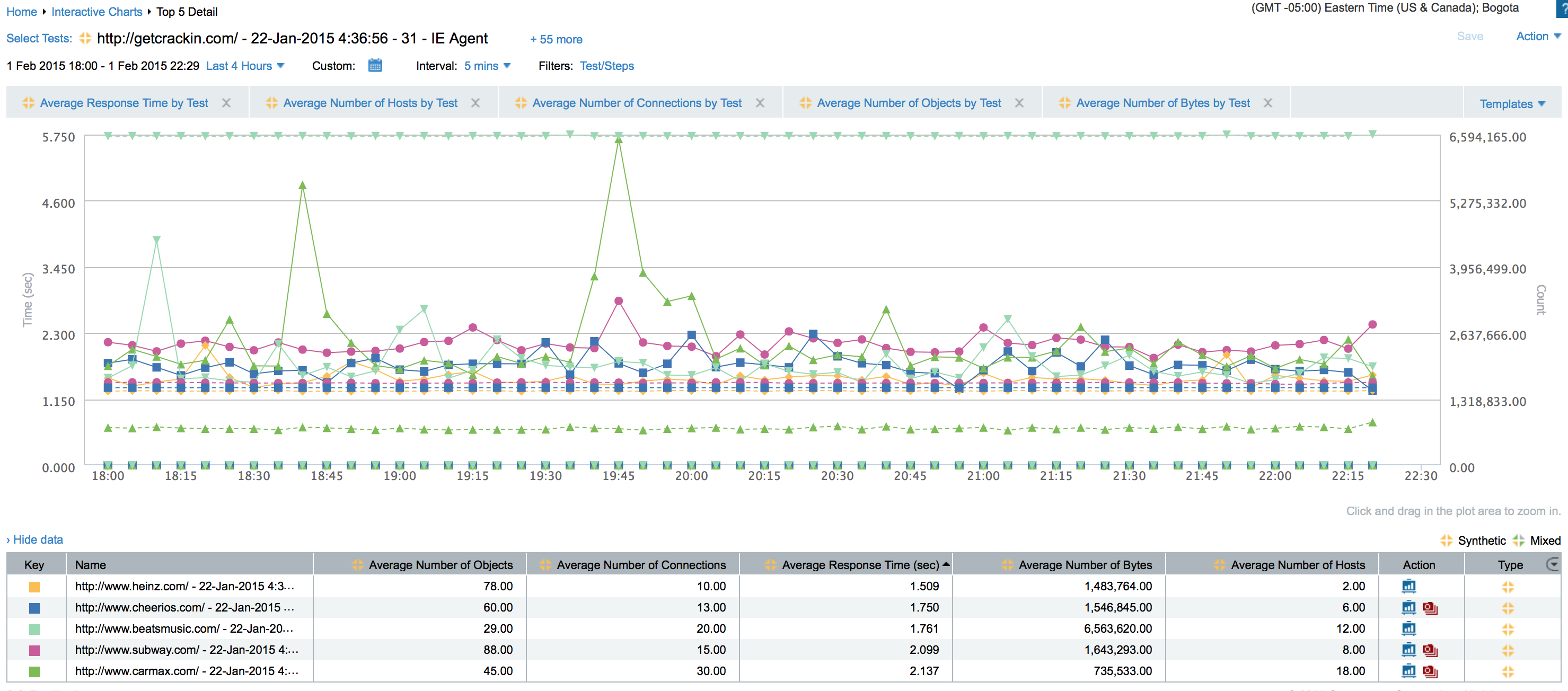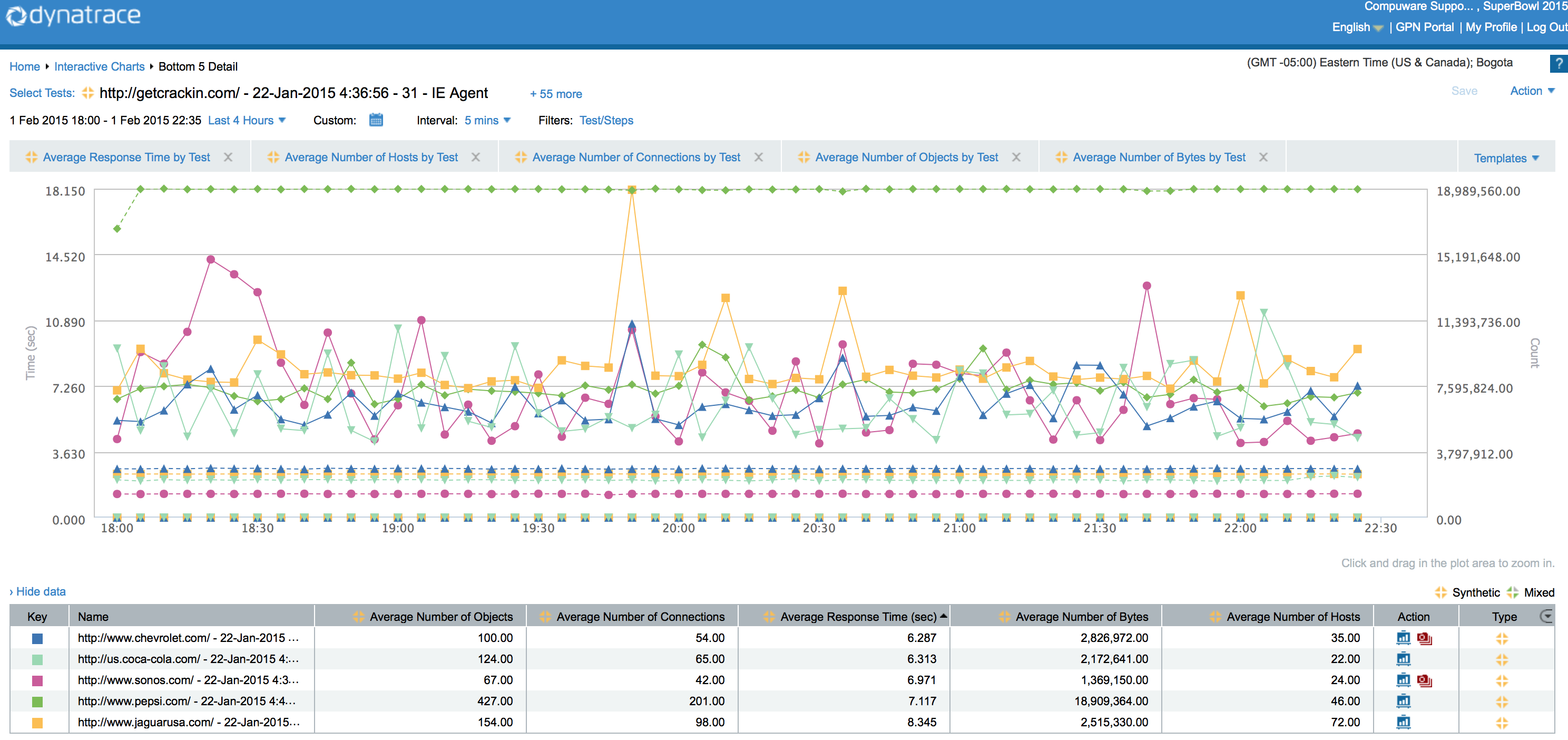During one of the most competitive, entertaining and ultimately unbelievable Super Bowls in NFL history, advertisers and websites played their own game of dueling performance metrics and response times. APM software provider Dynatrace monitored the brand websites advertising during the big game, and in the moment of truth revealed which stood up to the ultimate traffic challenge.
(Related: How to build a winning ‘Performance Bowl’ website)
The winners and losers of the 2015 “Performance Bowl,” according to the Dynatrace performance dashboard, are:
Winners: Heinz, Cheerios, Beats, Subway and CarMax
Losers: Jaguar, Sonos, T-Mobile, Toyota, Mercedes-Benz, Skittles
Biggest Loser: Pepsi
“[Pepsi] was very ambitious this year,” said David Jones, APM technical evangelist at Dynatrace. “While their site showed as being one of the slowest, their design left us with questions. They appeared to load half of their page very quickly, and then the rest of the page took more some time to load. Interesting design decision.”
In terms of average load time, Beats Music, Heinz and Cheerios maintained the top spots—all remaining under 2 seconds—both for the 24 hours before the game, as well as during the game. This load time snapshot of the Dynatrace performance dashboard was taken at halftime.
“Beats really is a winner with their design this year,” said Jones. “They pushed out 3x more content (bytes) than Sonos and were still faster. The key was keeping the number of connections and third parties to a minimum.”
The most prevalent cause of errors during the game turned out to be third-party redirects, including those from social networks such as Facebook and Twitter, which caused object errors. These issues afflicted sites including Dove, Pepsi and Skittles.
“What’s really alarming is that we are seeing this with JavaScript objects,” Jones said. “It makes us ask, what functionality is missing because these java scripts aren’t being delivered?”
The personal sites of performing stars also took hits during the broadcast, with KatyPerry.com and IdinaMenzel.com experiencing load time slowdowns during their respective performances.
Jones broke some of the early response times down into objects, connections and hosts, explaining why exactly some sites rose to the performance challenge and others faltered.
“Beats music has 29 objects, makes 20 connections, uses 12 hosts and is delivering 6.5MB of data every time the page loads. Jaguar has 196 objects, is making 97 connections, uses 71 hosts and is delivering 2.5MB of data,” Jones said. “The success and failure of many of the advertisers on Super Bowl Sunday was based not on the infrastructure of the host but based on the infrastructure of the third parties that will be providing them services. Understanding how those third parties are performing and aggressively managing SLAs with those vendors can make or break them on big days like this.”








